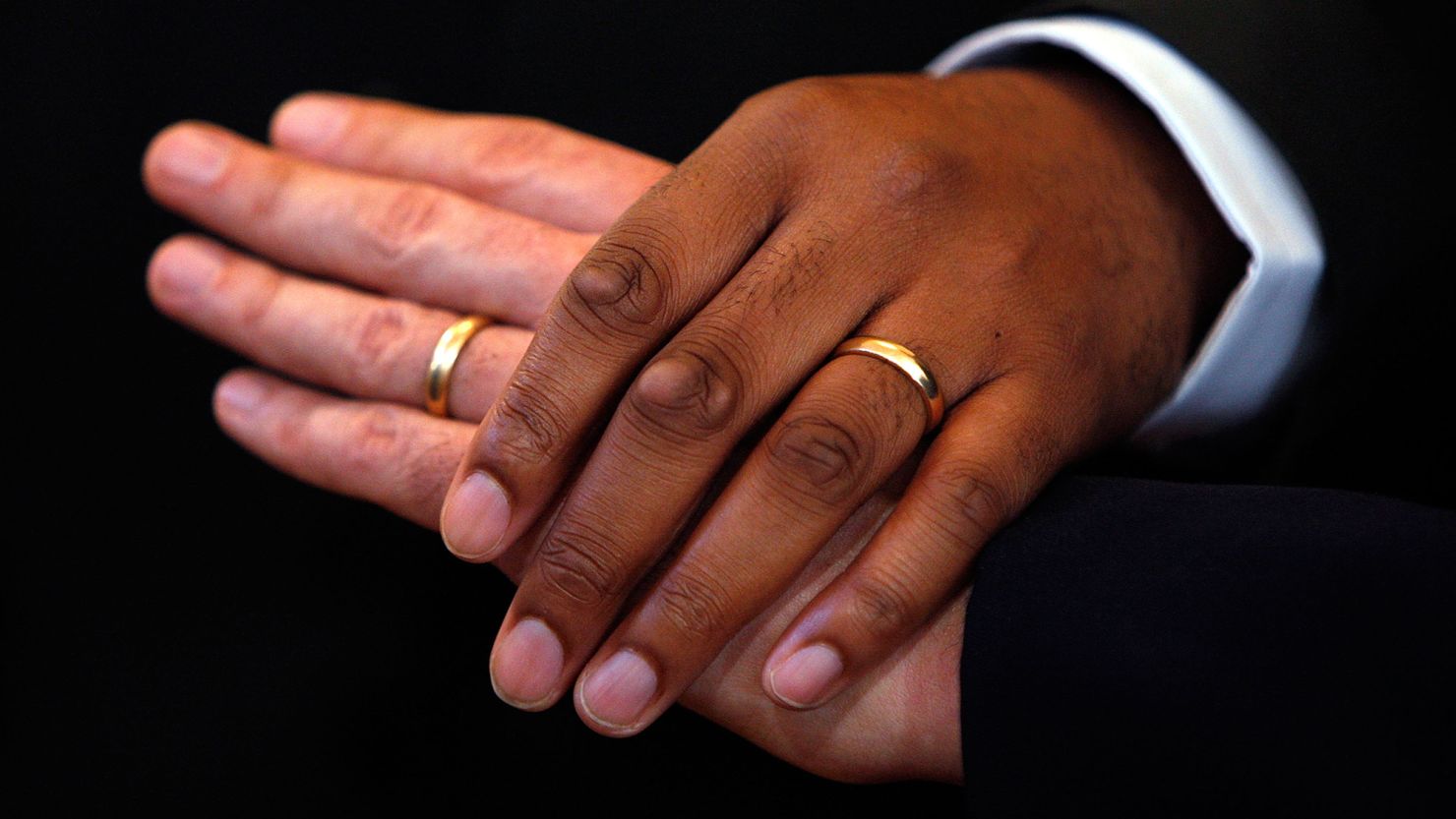Editor’s Note: Allison Hope is a writer whose work has been featured in The New Yorker, The New York Times, The Washington Post, CNN, Slate and elsewhere. The views expressed here are the author’s. Read more opinion on CNN.
In my most vulnerable moments, I have pictured having to tell my young child that his moms’ marriage is no longer recognized. I imagined choking back tears and reminding him that it doesn’t mean he is any less loved or protected. I envisioned telling him that our family is just as important as any other family – including ones with one mom and one dad.
Thankfully, Congress just ensured I will not have to have that conversation with my child anytime soon.

On Tuesday, the Senate voted to pass the Respect for All Marriage Act, a law that received a strong showing of bipartisan support in the House some months ago. It now goes to the House for a final vote, where it is expected to pass before the end of the year.
The Respect for All Marriage Act repeals the long-outdated Defense of Marriage Act, which defined marriage as between one man and one woman and allowed states to deny recognition of same-sex marriages that originated in states where they were legally recognized. The new bill also codifies that same-sex marriage is recognized federally and that same-sex spouses get the same federal benefits that all married couples receive.
In many ways, the bill is the eventuality that many advocates wanted to pursue more than a decade ago when there was momentum at the state level and marriage equality was passing in state legislatures. The hope was that a federal bill would help enshrine marriage recognition across all states – rather than rely on the Supreme Court, which could reverse a decision in favor of same-sex marriage someday, just as it did when it overturned Roe v. Wade in June.
That said, the law is not the be-all, end-all showstopper that allows us to recycle the protest signs and go home.
The bill contains carveouts by a bipartisan Senate cohort intended to appease Republicans and achieve the necessary 60 votes for passage. It gives religious institutions and organizations the right to define marriage as between one man and one woman and to refuse service to same-sex couples and families.
It further upholds the Religious Freedom Restoration Act, which was originally intended to protect religious minorities from discrimination by the state but has since been twisted by religious zealots and evangelists to refuse service to LGBTQ+ people on the grounds that it violates their deeply held religious belief.
It would allow religiously-affiliated adoption agencies the right to refuse to place foster children in an LGBTQ+ household, or allow a religious school the right to refuse to hire an LGBTQ+ teacher.
The law also leaves in place state-level bans on marriage equality that, should the Supreme Court overturn same-sex marriage, would return the country to a patchwork legal landscape similar to the one we saw before the court decision requiring states to recognize same-sex marriage. Holy confusing taxes, medical care and so many other things.
And it’s not game over for LGBTQ+ rights when the bill gets signed into law. Marriage is but one arena in civic life where LGBTQ+ people continue to face inequities and discrimination. We still don’t have blanket protections in housing or public accommodations, which the Equality Act would address, but which has not yet come to a floor vote in the Senate. And we continue to be exploited as wedge issues for right-wing platforms, as we’ve seen play out with hundreds of bills at the state level across 2022 legislatures.
Despite these lingering challenges, Tuesday’s vote is a significant win – and it rightly reflects the will of the majority. 71% of Americans support marriage equality, per a record-high May 2022 Gallup poll.
If the Supreme Court were to pull the rug out from under LGBTQ+ Americans, it would mean potentially tearing apart families with children and destroying fiscal units that strengthen our communities and economies. One only needs to look to Justice Clarence Thomas’ majority opinion in the Dobbs decision this past June, where he called for the overturning of marriage equality, to validate the fear.
“No American should ever, ever be discriminated against because of whom they love, and passing this bill would secure these much-needed safeguards into Federal law,” Sen. Chuck Schumer said when vowing to bring the bill up for a vote.
“I want to make clear that passing this bill is not a theoretical exercise… The rights and dignity of millions of Americans depend on it,” he explained. Indeed, my family depends on it.
I can hear the collective sigh of relief from millions of LGBTQ+ Americans and our loved ones.





